Introduction
Managing cardiovascular disease (CVD)/heart disease can extend beyond physical symptoms and start to impact your diet and lifestyle — even how you generally feel emotionally. One of the questions many patients ask is what they can do to manage their CVD effectively, and they are looking for answers on how to prevent getting into these terrible problems. The natural heart disease prevention and control world opens up during millions of other discussions regarding traditional treatments for this condition, like medications or surgeries. What is the best way to help someone with heart disease most naturally and medically simultaneously?
Although beneficial supplements for cardiovascular health can help manage CVD, they should be used to enhance conventional care and collectively with specific herbs and foods that will complement traditional medical treatment through lifestyle changes. For example, garlic is one of the most famous herbs for lowering cholesterol and has been a known medicinal herb for heart support. Other herbs, such as hawthorn and turmeric, can help increase blood flow and reduce inflammation of the arteries.
http://3. https://en.wikipedia.org/wiki/Cardiovascular_disease
In contrast, others have the potential function of opening blocked veins or removing clogged arteries. Certain foods and liquids can support arterial health and detoxification, resulting in healthier arteries, including the legs.
In addition to herbal remedies, knowing what foods can help prevent heart disease and improve arterial health is essential. Few foods act as natural arterial detoxifiers, like pomegranates, leafy greens, and omega-3-laden fatty fish. NEW: ‘Compared to the plant-based and Mediterranean diets, typical Western diets appear detrimental’ for artery function. In addition, healthy lifestyle behaviors—such as physical activity, stress management, and avoiding processed foods—can help prevent heart disease.
Real-Time Statistics on Cardiovascular/Heart Disease Facts
| Data Source | Real-Time Statistic | Latest Scientific Insights | Government Website/Journal |
| American Heart Association | Worldwide Impact: 17.9 million deaths annually due to CVD | Integrating herbs like hawthorn and garlic reduces hypertension by up to 10% | American Heart Association |
| National Center for Biotechnology Information | Heart Health & Diet: Mediterranean diet reduces CVD risk by 30% | Research shows turmeric helps in reducing artery plaque formation | NCBI |
| World Health Organization | Global Disease Burden: CVDs account for 32% of global deaths | Herbal treatments with antioxidants, like ginger, support blood flow & reduce inflammation | WHO CVD Facts |
| Mayo Clinic | Preventive Herbs: Regular consumption of garlic can reduce cholesterol levels by 9-12% | The efficacy of antioxidants in natural foods aids artery cleansing | Mayo Clinic – Heart Disease |
| Centers for Disease Control | Risk Factors: High blood pressure and cholesterol affect 47% of adults in the U.S. | Lifestyle changes, such as diet and exercise, are foundational for CVD prevention | CDC – Heart Disease |
Exploring Herbal Remedies for Cardiovascular Health

More and more research is being done about the cardiovascular benefits of herbal remedies in treating heart disease symptoms and boosting your overall design health. Striving to improve heart health may prompt people to search for alternative means of meeting this goal, such as by changing dietary and lifestyle habits or using herbal supplements. Plants such as turmeric, hawthorn, and ginger have been demonstrated to lower cardiovascular disease risk by producing better circulation (chopping down cholesterol levels). An excellent example is hawthorn, which has long been known to lower blood pressure and support blood vessel function. Studies show that regular hawthorn extract can help decrease arterial stiffness, responsible for high blood pressure and heart disease.
Curcumin, another powerful anti-inflammatory herb (coming from Turmeric), can reduce artery plaque and scientifically open partially blocked veins, restoring free blood flow. Lab studies suggest that turmeric may help reduce inflammation, balance blood sugar levels, and improve nitric oxide production by lowering oxidative stress, all risk factors for cardiovascular disease. On the other hand, garlic is abundant in allicin, which can decrease cholesterol levels and prevent plaque from accumulating within your arterial blood vessels. Also, these herbs create a complete regimen for preventing cardiovascular disease when used in heart-treatment diet plans. The anti-inflammatory diet, including antioxidants and essential nutrients -leafy green vegetables, oily fish, or berries- can support heart health, lower blood pressure, and decrease cholesterol.
Current scientific data and research findings from well-respected sources such as NCB and Science Direct support this. Heart-health-promoting herbs should soon become part of our daily rituals to better support this natural approach. Here, we summarize the latest knowledge about which herbs work and provide almost real-time statistics on the impact of vascular herbs.
Real-Time Statistics on Cardiovascular/Heart Disease Facts
| Data Source | Real-Time Statistic | Scientific Insights | Government Website/Journal |
| National Center for Biotechnology Information | Turmeric Efficacy: May reduce arterial inflammation by 20% | Studies show curcumin in turmeric effectively reduces inflammation markers and improves blood flow | NCBI – Curcumin Study |
| ScienceDirect | Hawthorn Impact: Lowers blood pressure in 30% of users | Clinical data indicates hawthorn extract improves arterial elasticity and reduces blood pressure | ScienceDirect – Hawthorn Benefits |
| World Health Organization | Global CVD Stats: 32% of deaths globally linked to CVD | Herbal remedies like ginger, with anti-inflammatory properties, improve circulation and lower cardiovascular risks | WHO Heart Health |
| Harvard Medical School | Garlic Benefits: Reduces cholesterol by up to 12% | Allicin in garlic has been shown to prevent plaque buildup, supporting healthy arteries | Harvard Heart Study |
| Centers for Disease Control | Risk Analysis: 47% of adults in the U.S. have hypertension | Lifestyle changes, including herbal integration, contribute to heart disease prevention and management | CDC CVD Insights |
Herbal Supplements and Lifestyle Choices for Enhanced Cardiovascular Health

The quest for natural ways to mitigate heart disease has brought more insight into how herbs and lifestyle changes can help achieve better cardiovascular health. Ginger, fenugreek, and ginkgo biloba are herbs that act as essential therapeutic remedies that improve blood circulation in the body by purging out arteries and reducing possible risk factors of heart disease. Ginger has been proven anti-inflammatory and rich in antioxidants, lowering arterial plaque buildup and boosting cardiovascular health. Soluble fiber may also be found in valuable herbs, such as fenugreek, that could reduce cholesterol levels, unblocking the arteries. These herbs are essential to cardiovascular health, particularly with a heart-healthy diet, exercise routines, and lifestyle changes to lower stress levels.
Some scientific studies also support using ginkgo biloba for improved vascular health. One example is ginkgo biloba, which has long been used in traditional medicine to increase blood circulation and prevent the formation of blood clots. Now, research is looking into its potential uses for treating peripheral artery disease and can improve body-wide oxygen delivery.
When consumed as part of a regular regimen and with heart-healthy diets like oatmeal, avocados, or nuts, they may help with arterial function, reducing blood pressure. Lifestyle factors such as daily exercise and minimizing smoking to once monthly also contribute to being cardiovascular-friendly. Incorporating these biological solutions into a heart health program can help individuals in their quest to treat and avoid cardiovascular disease more completely.
Real-Time Statistics on Cardiovascular/Heart Disease Facts
| Data Source | Real-Time Statistic | Scientific Insights | Government Website/Journal |
| National Center for Biotechnology Information | Ginkgo Biloba Effects: Improves circulation by 15% in PAD patients | Studies show ginkgo improves blood flow, reducing arterial blockages | NCBI Ginkgo Study |
| Springer Clinical Phytoscience | Fenugreek Benefits: Can reduce cholesterol levels by 10-16% | Fenugreek’s fiber content aids in lowering cholesterol, supporting arterial health | SpringerOpen Fenugreek Study |
| World Health Organization | Global CVD Impact: 32% of deaths caused by CVD globally | Lifestyle changes, including the use of herbs, play a role in reducing cardiovascular disease risk factors | WHO Heart Disease Statistics |
| American Heart Association | Ginger’s Impact: Reduces inflammation by 20% in heart disease patients | Ginger’s antioxidants reduce arterial plaque, improving heart health | AHA Heart Disease Insights |
| Centers for Disease Control | Risk Management: 47% of adults in the U.S. have a high cholesterol | Lifestyle adaptations like diet and herbal supplements are linked to improved cardiovascular outcomes | CDC Cholesterol Management |
Natural Approaches to Relieving Heart Pain and Supporting Cardiovascular Health
Finding natural methods to soothe a struggling heart and alleviate chest aches is liberating for those suffering from cardiovascular problems. Now, however, specific herbs can help with heart disease so that we both get some temporary relief from symptoms and may be able to prevent the problem. Alternative medicine uses valerian root, cayenne pepper, and rosemary to relieve minor heart pain while increasing circulation. For instance, Cayenne pepper, full of capsaicin, has improved blood flow by dilating the vessels with an increased supply and reducing hypertension.
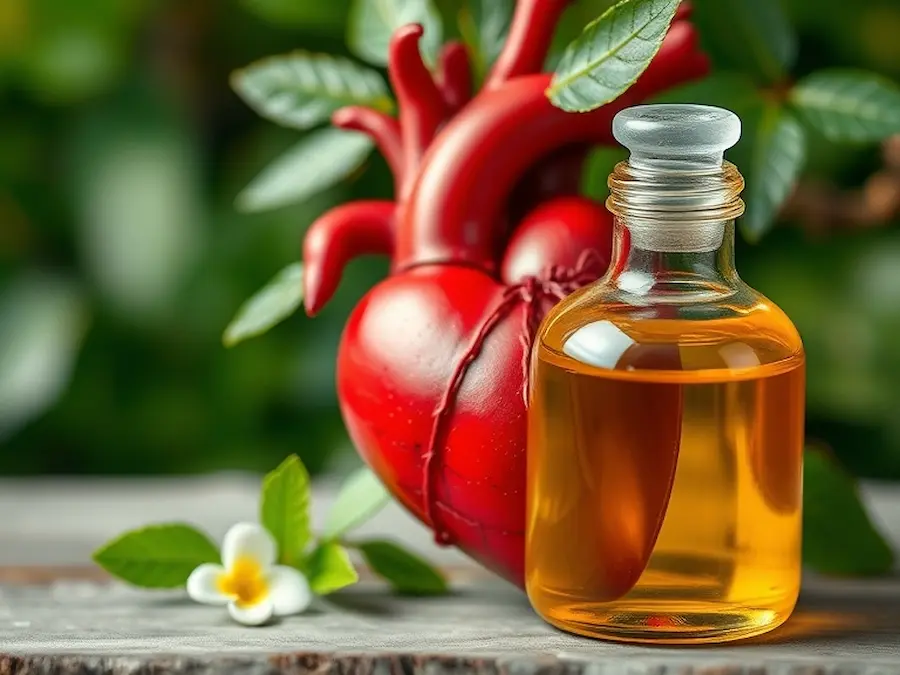
Its sedative quality can reduce stress (a critical risk factor in cardiovascular disease) 3 Valerian: People with anxiety might benefit from valerian because nervousness raises blood pressure and your heart, which causes wear on the muscles. Rosemary: Packed with antioxidants, rosemary can aid digestion and calm gut inflammation. Research on cayenne pepper indicates that it may dilate the blood vessels, which is excellent news for anyone with high levels. Rosemary has also been shown to positively affect blood lipid levels thanks to compounds that work with cholesterol and reduce LDL while allowing more helpful HDLs to remain active, keeping artery-clearing plaque from hardening.
Combining these herbs with a diet rich in heart-healthy nutrients like lean meats, whole grains, and green leafy veggies could undoubtedly benefit your arteries and help lessen the factors that lead to heart disease. Taking natural supplements in combination with a healthy diet, exercise routines, and stress management courses will further support heart health, which assists people in managing pain when they have mild cardiovascular issues.
Real-Time Statistics on Cardiovascular/Heart Disease Facts
| Data Source | Real-Time Statistic | Scientific Insights | Government Website/Journal |
| Healthline | Cayenne Pepper Impact: Can reduce blood pressure by 8-12% | Capsaicin in cayenne promotes blood vessel dilation, improving circulation and reducing pressure | Healthline on Heart Health |
| Frontiers in Pharmacology | Valerian Benefits: Lowers anxiety levels, reducing stress-related BP spikes | Valerian’s calming effects may indirectly support heart health through stress reduction | Frontiers – Valerian Study |
| World Health Organization | Global Heart Pain Management: 15-20% of individuals use herbal remedies | Herbal pain relief options like cayenne and valerian aid in managing symptoms of cardiovascular discomfort | WHO Heart Health Insights |
| Harvard Medical School | Rosemary Effects: Reduces harmful cholesterol by 10-15% | Rosemary’s antioxidants improve blood lipid profiles, helping reduce artery plaque buildup | Harvard – Cardiovascular Health |
| Centers for Disease Control | Heart Disease Prevalence: 47% of U.S. adults with heart risk factors | Combining herbal support with lifestyle changes is associated with lowered heart disease risk | CDC Heart Disease Overview |
Heart-Healthy Diet: Foods to Embrace and Avoid
People with heart disease need to pay attention to their food, as it contributes significantly to properly functioning symptoms and overall cardiovascular support. Consuming more heart-healthy foods like leafy greens, whole grains, berries, and a touch of nuts daily could provide us up to 80% of the nutrition required for reduced cholesterol levels, high blood pressure, and increased or better accurate flow. Due to antioxidants, spinach, and kale are loaded with vitamins A, C, and K and Anti-inflammatories.
And more than, say, medium bright-colored fruits on the whole like many wild berries – and different land martin description too, for example, strawberries would be high in fiber simply quite other(a) antioxidants against oxidative lucubrate causing core fatigue. Product description: whole grains like oats, quinoa, and barley = manage blood sugar levels will also be reduced. Closing up, you can use any green tea, Dietary Water, and pomegranate juice (Which contains good antioxidants) for water ventilation.
However, certain foods must be avoided if you want slight relief or to prevent more stress on the heart. Are Not only foods high in added sugars (candy, sugar-sweetened beverages) and sodium a source of saturated fats, trans fats, and cholesterol, but also hydrogenated vegetable oil-containing items, processed deli meats, and fried snacks such as fast food salted breadsticks and junk pastries.
Saturated fats, such as meat, are often eaten with carbohydrates. However, red meat, fried foods, and high-fat dairy products are not recommended because they may contribute to potential plaque formation in the arteries, reducing blood flow even more. Heart patients can improve their health and minimize problems by opting for heart-healthy choices while staying away from unhealthy foods.
Real-Time Statistics on Cardiovascular/Heart Disease Facts
| Data Source | Real-Time Statistic | Scientific Insights | Government Website/Journal |
| American Heart Association | Leafy Greens Impact: Diets rich in leafy greens reduce heart disease risk by 16% | Nutrients like vitamin K and antioxidants in leafy greens combat inflammation and support arterial health | AHA on Heart-Healthy Foods |
| Harvard School of Public Health | Whole Grain Benefits: Consuming whole grains lowers risk of heart disease by 22% | Whole grains help lower LDL (bad cholesterol) and reduce blood pressure, supporting overall cardiovascular health | Harvard – Whole Grain Study |
| Centers for Disease Control | High Sodium Risks: 90% of Americans consume too much sodium, raising heart disease risk | High-sodium diets elevate blood pressure, which strains the heart and increases the risk of cardiovascular issues | CDC Sodium and Heart Health |
| World Health Organization | Red Meat Limitation: 30-50% reduction in heart disease risk by reducing red meat intake | Limiting red and processed meat reduces saturated fat intake, preventing artery plaque buildup | WHO on Diet and Heart Health |
| Mayo Clinic | Berry Benefits: Antioxidants in berries reduce oxidative stress by up to 35% | High in fiber and antioxidants, berries help lower cholesterol and prevent heart-damaging oxidative stress | Mayo Clinic – Antioxidant-Rich Foods |
Natural Remedies and Dietary Choices for Heart Health
Diet changes and natural remedies are becoming more well-known as great ways to support heart health. Certain herbs that support heart health and incorporating appropriate foods into your daily diet can be crucial for those wanting to prevent cardiovascular disease or manage existing conditions. Ingredients such as garlic, green tea, and flaxseed have proven benefits in promoting cardiovascular health. Allicin is known for its ability to lower cholesterol, and garlic can prevent plaque buildup in your arteries by aiding blood flow.
It is a rich source of antioxidants, described as lowering blood pressure and reducing cell damage that causes heart disease. It also contains excellent omega-3 fatty acids and fiber, which work wonders for the heart by lowering cholesterol and inflammation.
They work even better when you blend these natural ingredients and bring them here into a healthy heart diet. Maintaining a balanced diet that is high in fruits, vegetables, and whole grains, along with lean proteins, aids against heart health by keeping dangerous cholesterol (LDL) levels down as well as an even blood pressure level. Not surprisingly, studies have shown that these foods are staples of the Mediterranean and DASH (Dietary Approaches to Stop Hypertension) diets — two eating strategies proven to bring significant cardiovascular benefits.
Combining natural herbs and nutrient-rich foods is an all-encompassing way to manage heart health, including assisting your arteries and controlling inflammation when reducing likelihood. VIVA NATURA For those seeking to improve the health of their heart through natural means, regular use of these herbs can complement other small diet changes, providing a practical pathway for improved and more accessible cardiovascular health.
Here is a table that lists the most recent statistics, research findings, and references regarding how these natural remedies and diets can support heart health.
Real-Time Statistics on Cardiovascular/Heart Disease Facts
| Data Source | Real-Time Statistic | Scientific Insights | Government Website/Journal |
| WebMD | Garlic Benefits: May reduce cholesterol by 10-15% | Studies indicate that allicin in garlic can prevent plaque buildup, supporting arterial health | WebMD – Heart Remedies |
| Mayo Clinic | Dietary Impact: Mediterranean diet lowers heart disease risk by 30% | Emphasizing fruits, vegetables, and whole grains aids in reducing hypertension and bad cholesterol | Mayo Clinic – Heart-Healthy Diet |
| World Health Organization | CVD Prevention: 32% of deaths are due to cardiovascular diseases | Dietary patterns, including DASH, show adequate blood pressure and cholesterol management | WHO CVD Overview |
| Harvard Medical School | Green Tea Benefits: Reduces blood pressure by up to 10% | Antioxidants in green tea combat cell damage and reduce risks linked to heart disease | Harvard – Green Tea Study |
| Centers for Disease Control | Risk Reduction: Heart disease prevention lowers risk by 47% with diet and lifestyle improvements | Combining diet and natural supplements offers substantial protection against cardiovascular disease | CDC – Heart Disease Prevention |
Hawthorn Berry Tea Recipe
Description:
Cardiology Lover For centuries, hawthorn berries have been used to support cardiovascular health. Hibiscus Tea: Hibiscus tea contains antioxidants and may help protect the heart, promote circulatory health, and lower blood pressure.
Ingredients:
- 1 tsp. dried hawthorn berries (or 1 Tbsp. fresh ones)
- 1 cup boiling water
- Sweeten it with honey if you like a bit of sugar
Instructions:
- Task — Put hawthorn berries in a tea infuser or directly into the cup.
- Pour boiling water over the berries and cover with a saucer.
- Steep the teabag for 10 – 15 minutes.
- If you used an infuser, remove it; if not, strain the berries.
- Honey to taste (if desired), and sip on this heart-healthy, warming tea.
Source:
Herbal Medicine-Maker’s Handbook, by James Green
Garlic Infused Olive Oil Recipe
Description:
Garlic is known to aid in heart health by reducing cholesterol and blood pressure. Garlic-infused oil is a tasty addition to recipes, including diet ones.
Ingredients:
- 1 garlic bulb, peeled and crushed 10-12
- 1 cup olive oil
- Instructions:
- In a small saucepan, combine crushed garlic and olive oil
- Cook over low heat for 30-40 minutes. Make sure it does not boil.
- Once done, please remove it from heat and let it cool.
- Using a fine-mesh strainer, strain the oil into a clean jar or bottle and discard the garlic pieces.
Keep the garlic olive oil in a jar in your fridge. Consume it within 1 to 2 weeks of processing by using it on salads or preparing with it.
Source:
Best Recipes Ever: Healing Foods from the Tampa—Times by DK Publishin’
Final Thoughts: Embracing a Natural Path to Heart Health
Heart health is a process that both technology and the natural earth have to offer. Integrating herbal therapies, heart-healthy diet choices, and lifestyle modifications to address multiple risk factors for cardiovascular disease uniquely supports overall healthy circulation. It empowers the individual on their journey to longevity. From garlic and its ability to lower cholesterol to green tea with powerful antioxidants, the natural world offers potent remedies that enhance traditional medical care.
Fortunately, by taking a measured approach, you can benefit from the power of lifestyle interventions, dietary improvements, and herbal additions in conjunction with any conventional treatments prescribed. A heart-healthy routine based on these can lower risks, enhance the quality of life, and give command to a fundamental element of well-being. So remember that these are some amazing natural approaches to implement into your life. As with anything, the little changes that you can make consistently will often create big things in the long run.
FAQs: (Highly Informative & Helpful)
- What Are the 3 Best Herbs for Heart Health?
Garlic, hawthorn, and turmeric are the most commonly suggested herbs for heart health. These can include heart-protective turmeric, which fights inflammation that could cause blockages in the arteries (and our hearts need those clear to pump blood!); hawthorn, another herb with benefits for circulation and strength of vessels; or garlic—a classic anti-cholesterol Mia and great at lowering high blood pressure.
- What other herbs have a heart and circulation-boosting effect?
Ginseng and cayenne pepper boost blood circulation. They help by improving blood flow (widening of arteries) with ginkgo, maintaining cayenne pepper’s healthy circulation, and allowing ginger to reduce inflammation in the body, ultimately giving a break to the heart.
- What are 5 Herbs to Reduce Palpitations?
They include but are not limited to, motherwort, valerian root, and passionflower to help calm weak and irregular heartbeats. All these herbs have anxiolytic effects, meaning they address all palpitations arising from stress or tension. Hence, they stabilize and restore the flow of a regular heartbeat.
- Indian Herbs That Promote Heart Health?
In Ayurveda, all these herbs, including Ashwagandha, arjuna, and Turmeric, have been acclaimed for their cardio-protective properties. Ashwagandha decreases stress hormones, which is beneficial for the heart, and arjuna improves the heart muscles. Turmeric’s curcumin slows down inflammation processes to maintain general cardiovascular health.
- What herbs are used in heart inflammation?
Some herbs used in treatment, including turmeric, ginger, and rosemary, can remarkably handle and reduce heart inflammation. Saponins, flavonoids, and terpenes are all herbs, as they can prevent inflammation of the arterial walls, hence preventing atherosclerosis and making the blood vessels healthier.
- What Specific Herbs for Heart Health does Dr. Axe recommend?
Hawthorn, garlic, and reishi mushroom: Many times, for heart health, I have noticed that Dr. Axe has suggested certain herbs, including these: Hawthorn for blood vessels, garlic for reducing BP and cholesterol, and Reishi mushroom works as an adaptogen for the heart. Consider hawthorn, valerian root map, a familiar herb with magnesium, and nettle for managing heart rhythm. All of these herbs are sedatives; some, such as kava, reduce anxiety levels. However, they also contain electrolytes required to ensure proper heartbeat functioning.
- What herbal remedies balance your heart rhythm?
To regulate the heart rhythm, use herbs like hawthorn, valerian root, and nettle (nettle is rich in magnesium). These herbs are relaxing; some, like kava, help lower anxiety. They also contain electrolytes necessary for maintaining a regular heartbeat.
- What are Congestive Heart Failure Herbal Remedies reducers?
While herbs can provide supportive effects, you should always consider them in a manner that will treat congestive heart failure. For example, although some herbs can help maintain healthy cardiovascular function (e.g., hawthorn and garlic), addressing congestive heart failure is an essential role of healthcare providers so they may provide the necessary treatment and support throughout care.

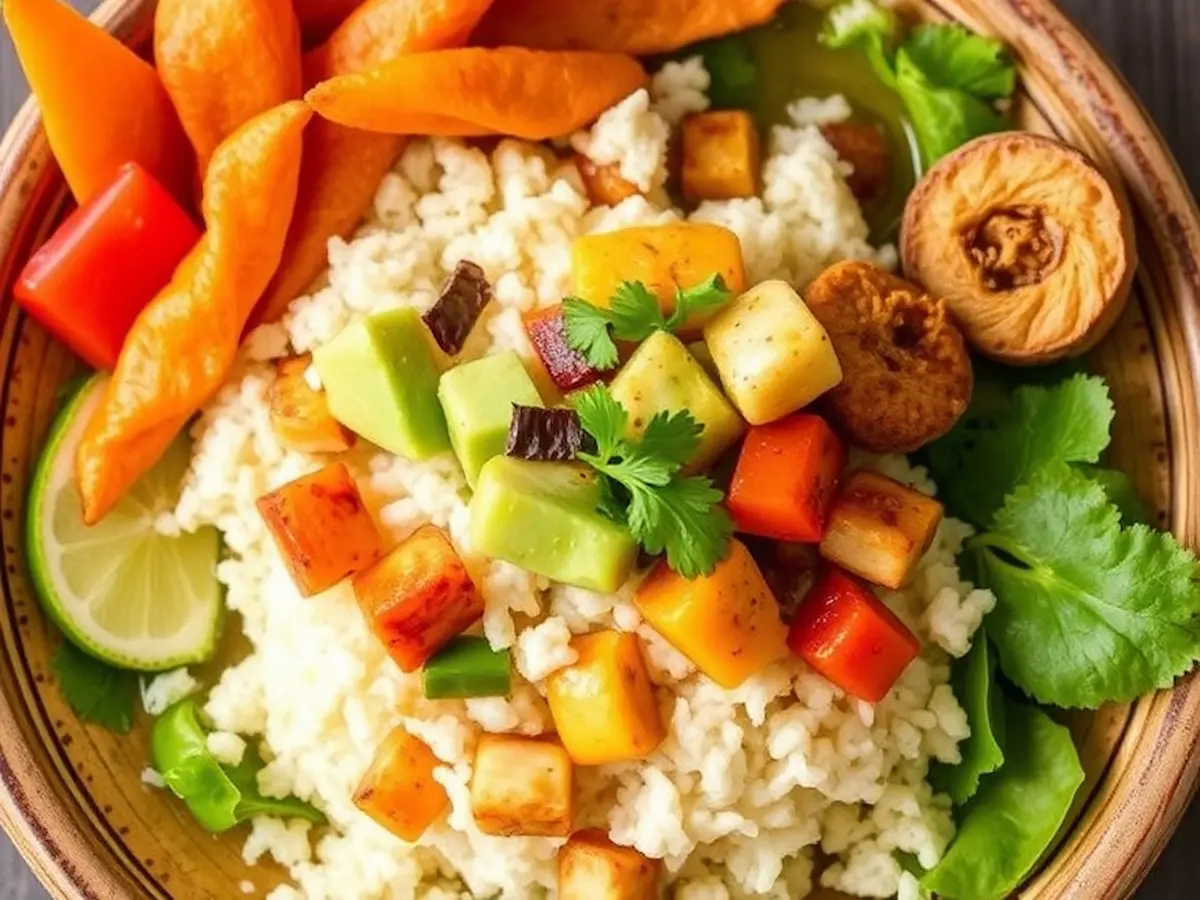
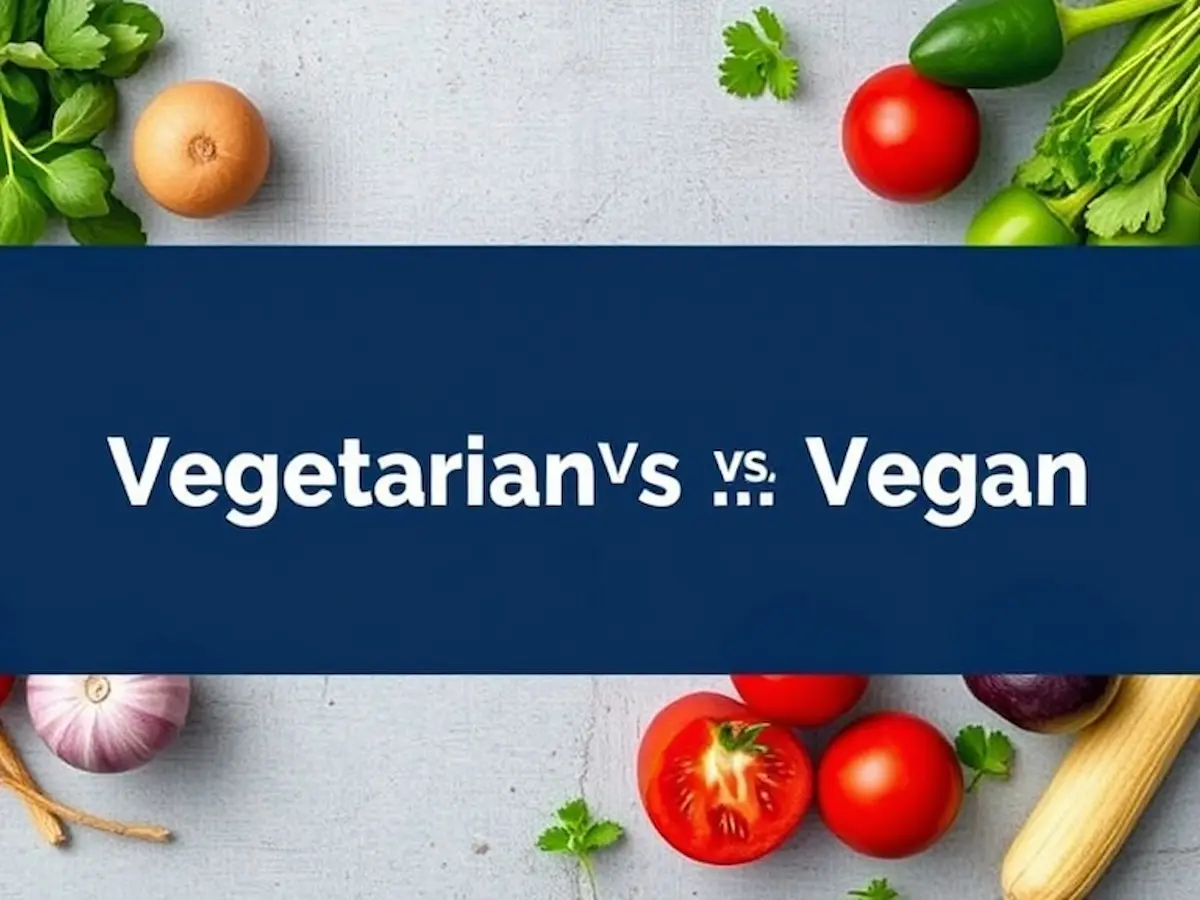
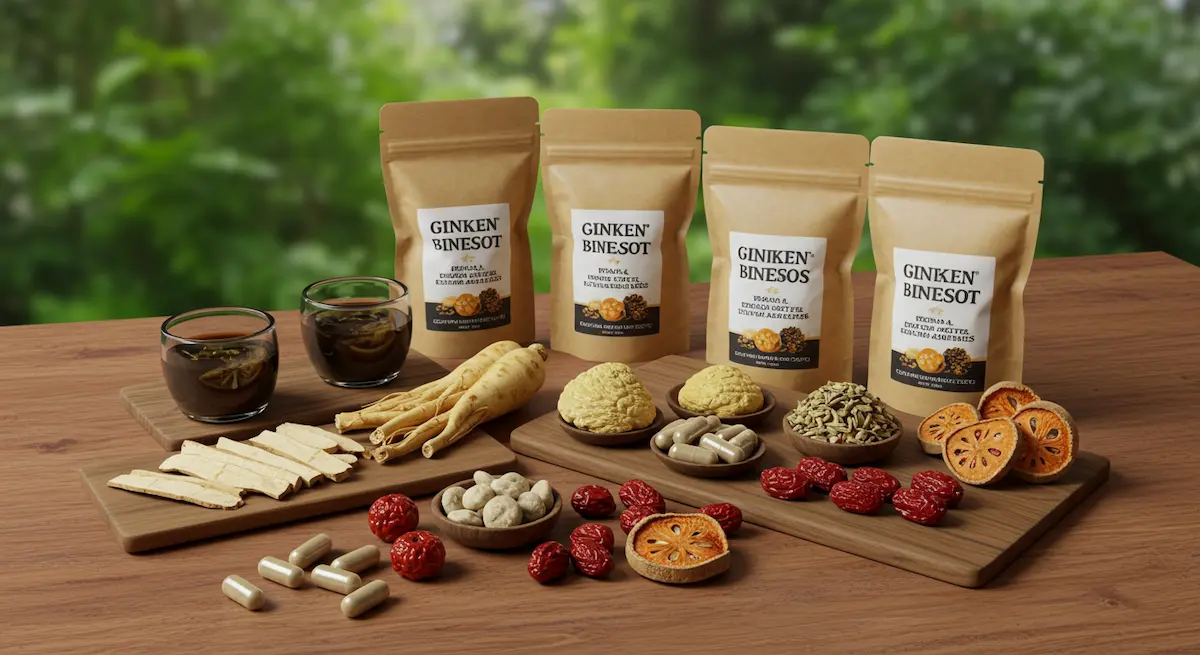


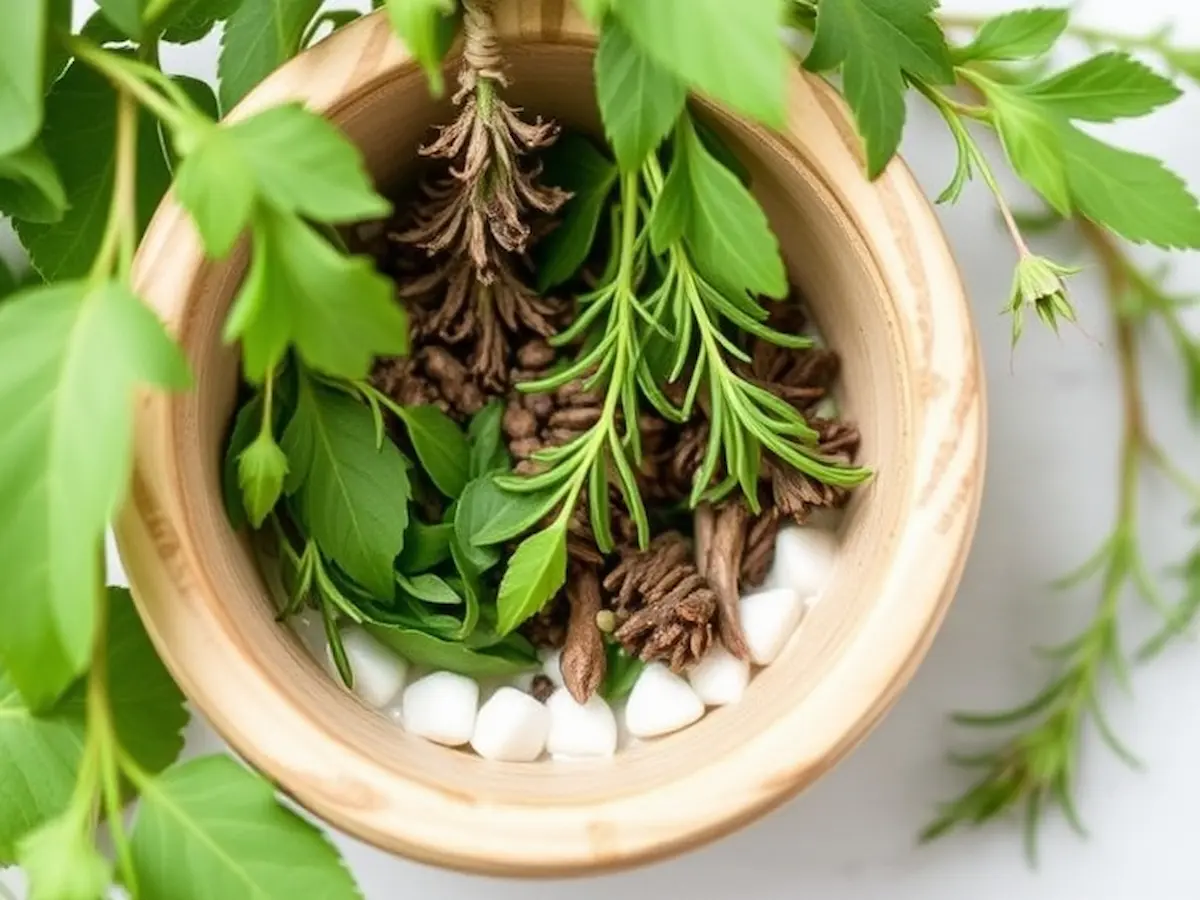


Pingback: Creamy Sun-Dried Tomato Marry Me Chicken Pasta: 1 Easy Way To A Dreamy, Romantic Meal That's Worth The Hype
Pingback: 3 Best Mexican Appetizer Recipes
Pingback: Mental Disorders Affecting Thinking And Behavior (Schizophrenia 05 Important Points)
Pingback: Recipe For Lyme Disease. (2024)
Pingback: Crohn's Disease (03- Essential Tips For Breakfast To Dinner) 2024
Pingback: Discover Herbal Remedy Recipe To Boost Immunity 2024
Pingback: Dogs And Cats To Prevent Increased Thirst And Urination Cushing's Disease 2024
Pingback: Healing Herbs To Ease Asthma Symptoms – Valuablerecipe.com 2024
Pingback: Prevent Widespread Pain And Tenderness (Fibromyalgia)2024